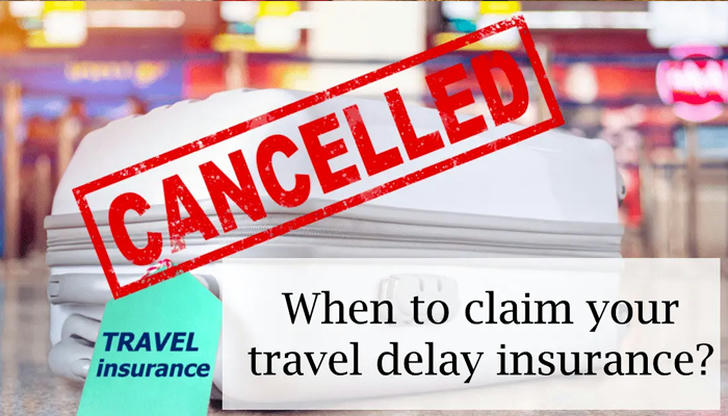Travel Insurance Explained: Do You Really Need It?
Travel insurance is often presented as a must-have for any trip, whether it’s a short weekend getaway or a months-long international adventure. But with so many options, exclusions, and fine print details, it’s understandable that travelers might wonder: Do I really need travel insurance? This article provides a comprehensive overview of travel insurance, explaining what it covers, the types available, common exclusions, how to choose the right policy, and situations when it’s highly recommended or optional. By the end, you’ll be equipped to make an informed decision about whether travel insurance fits your travel plans and peace of mind.

What Is Travel Insurance?
Travel insurance is a specialized policy designed to protect travelers from financial losses and unexpected events that can occur before or during a trip. Unlike typical health or property insurance, travel insurance focuses on risks related specifically to travel, such as trip cancellations, medical emergencies abroad, lost luggage, and travel delays.
At its core, travel insurance helps cover costs that could otherwise be financially devastating if something goes wrong while traveling. It offers a safety net, providing reimbursement or assistance when problems arise.
Types of Travel Insurance Coverage
Travel insurance is not one-size-fits-all. Policies typically come with different types of coverage that you can select based on your needs. The most common types include:
1. Trip Cancellation and Interruption Insurance
This coverage reimburses non-refundable prepaid expenses if you must cancel or cut short your trip due to unforeseen reasons, such as:
- Sudden illness or injury to you, a traveling companion, or a close family member
- Natural disasters affecting your destination
- Travel provider bankruptcy or strikes
- Jury duty or other legal obligations
It can also cover additional costs if your trip is interrupted, like extra accommodation or transportation.
2. Emergency Medical and Evacuation Coverage
Medical emergencies abroad can be costly, especially in countries where your domestic health insurance doesn’t apply. This coverage helps pay for:
- Emergency medical treatment or hospitalization
- Emergency medical evacuation or repatriation to your home country
- Ambulance services and sometimes dental emergencies
3. Baggage Loss, Delay, or Theft Insurance
This protects your belongings in case your luggage is lost, stolen, or delayed by the airline or other carriers. Depending on the policy, it may cover:
- Reimbursement for lost or damaged luggage and personal items
- Expenses to purchase essential items if your baggage is delayed
4. Travel Delay Coverage

If your trip is delayed for reasons beyond your control (e.g., weather, mechanical issues, strikes), this coverage reimburses expenses such as meals, accommodations, or transportation incurred during the delay.
5. Accidental Death and Dismemberment (AD&D)
This provides benefits to you or your beneficiaries if you suffer a fatal accident or severe injury during your trip.
Common Exclusions and Limitations
Understanding what travel insurance does not cover is just as important as knowing what it does. Common exclusions include:
- Pre-existing medical conditions (unless declared and covered)
- High-risk activities like extreme sports without additional coverage
- Travel to countries or regions under government travel advisories or bans
- Losses due to alcohol or drug use
- Acts of terrorism (some policies exclude this or require a rider)
- Claims made after deadlines or without proper documentation
Always read the fine print carefully before purchasing a policy to avoid surprises.
Who Should Consider Travel Insurance?
While travel insurance can benefit almost any traveler, certain groups and situations make it particularly important:
International Travelers
If you are traveling abroad, especially to countries with expensive healthcare systems (like the US), emergency medical coverage is crucial. Most domestic health insurance plans provide little or no coverage overseas.
Travelers with Prepaid Non-refundable Expenses
If you have already paid for flights, hotels, tours, or cruises that are non-refundable, trip cancellation/interruption insurance can protect you from losing all that money if you must cancel.
Older Travelers or Those with Health Conditions
Older adults or travelers with existing medical conditions should consider medical and evacuation coverage since the risk of needing medical attention may be higher.
Adventure and Sports Enthusiasts
If your trip includes activities like scuba diving, skiing, or mountain climbing, check if your policy covers these or if you need additional coverage.
Frequent Travelers
Frequent travelers might benefit from annual multi-trip policies that cover multiple trips within a year at a cost-effective price.
When Might Travel Insurance Be Optional?
If you are taking a short domestic trip with minimal prepaid expenses or traveling to destinations where your health insurance applies fully, you might decide to forgo travel insurance. Similarly, if your credit card or travel provider offers some protection, you may not need a separate policy.
However, even in these cases, consider the financial risks of an emergency or cancellation and whether you are comfortable covering those costs out of pocket.
How to Choose the Right Travel Insurance Policy

Selecting the best travel insurance policy involves considering your destination, trip type, health status, and risk tolerance. Here are steps to guide you:
1. Assess Your Needs
- What is your destination’s healthcare cost and risk profile?
- How much have you prepaid that is non-refundable?
- Are you engaging in high-risk activities?
- Do you have pre-existing medical conditions?
2. Compare Coverage and Limits
Look for policies with sufficient medical coverage limits (often $100,000 or more) and cancellation limits that reflect your prepaid expenses.
3. Understand the Deductibles
Many policies require you to pay a deductible before coverage applies. Consider how much you’re willing to pay out-of-pocket.
4. Check for Exclusions
Review what is excluded and whether you need additional riders or policies for activities or conditions not covered.
5. Read Reviews and Buy from Reputable Providers
Use trusted insurance companies and check customer reviews and complaint records.
Tips for Making a Claim
- Keep all receipts, medical reports, and travel documents.
- Notify your insurer as soon as an incident occurs.
- Follow the insurer’s claims process carefully and meet deadlines.
- Keep copies of all correspondence.
Real-World Examples
Example 1: Trip Cancellation
Jane booked a non-refundable cruise but fell ill two days before departure. Because she purchased trip cancellation insurance, she was reimbursed for the full cost of her trip, saving thousands.
Example 2: Medical Emergency Abroad
During his vacation in Spain, Mike slipped and broke his leg. His travel insurance covered ambulance transport, hospital care, and medical evacuation back home, all of which would have been prohibitively expensive otherwise.
Example 3: Lost Luggage
Sara’s luggage was lost on a flight to Peru. Thanks to her policy’s baggage coverage, she was reimbursed for essential clothing and toiletries while her luggage was missing.
Conclusion: Is Travel Insurance Worth It?
Ultimately, the decision to purchase travel insurance depends on your individual circumstances, travel plans, and risk tolerance. While it may seem like an extra expense, travel insurance can provide invaluable protection against financial loss and stress during unexpected travel mishaps.
If your trip involves international travel, significant prepaid expenses, or activities with potential risks, investing in a comprehensive travel insurance policy is wise. For short, low-cost domestic trips, the decision may be more flexible.
Travel insurance is about peace of mind—knowing that if the unexpected happens, you won’t face overwhelming costs or logistical nightmares alone. Armed with this knowledge, you can confidently decide whether travel insurance is right for your next journey.
